Abarth 500 595 695 vs BMW X3 – Differences & prices compared
Two cars, one duel: Abarth 500 595 695 meets BMW X3.
Which one wins in performance, efficiency and value for money? Find out now!
Costs and Efficiency:
When it comes to price and running costs, the biggest differences usually appear. This is often where you see which car fits your budget better in the long run.
Abarth 500 595 695 has a significantly advantage in terms of price – it starts at 32600 £, while the BMW X3 costs 51300 £. That’s a price difference of around 18695 £.
As for range, the Abarth 500 595 695 performs significantly better – achieving up to 265 km, about 177 km more than the BMW X3.
Engine and Performance:
Power, torque and acceleration are the classic benchmarks for car enthusiasts – and here, some clear differences start to show.
When it comes to engine power, the BMW X3 has a convincingly edge – offering 398 HP compared to 155 HP. That’s roughly 243 HP more horsepower.
In acceleration from 0 to 100 km/h, the BMW X3 is decisively quicker – completing the sprint in 4.60 s, while the Abarth 500 595 695 takes 7 s. That’s about 2.40 s faster.
In terms of top speed, the BMW X3 performs clearly perceptible better – reaching 250 km/h, while the Abarth 500 595 695 tops out at 155 km/h. The difference is around 95 km/h.
There’s also a difference in torque: BMW X3 pulls convincingly stronger with 670 Nm compared to 235 Nm. That’s about 435 Nm difference.
Space and Everyday Use:
Beyond pure performance, interior space and usability matter most in daily life. This is where you see which car is more practical and versatile.
Seats: BMW X3 offers slightly more seating capacity – 5 vs 4.
In curb weight, Abarth 500 595 695 is clearly perceptible lighter – 1410 kg compared to 1930 kg. The difference is around 520 kg.
In terms of boot space, the BMW X3 offers significantly more room – 570 L compared to 185 L. That’s a difference of about 385 L.
In maximum load capacity, the BMW X3 performs convincingly better – up to 1700 L, which is about 1150 L more than the Abarth 500 595 695.
When it comes to payload, BMW X3 noticeable takes the win – 570 kg compared to 385 kg. That’s a difference of about 185 kg.
Who comes out on top?
Overall, the BMW X3 shows itself to be is largely superior and secures the title of DriveDuel Champion.
It convinces with the more balanced overall package and proves to be the more versatile choice for everyday use.
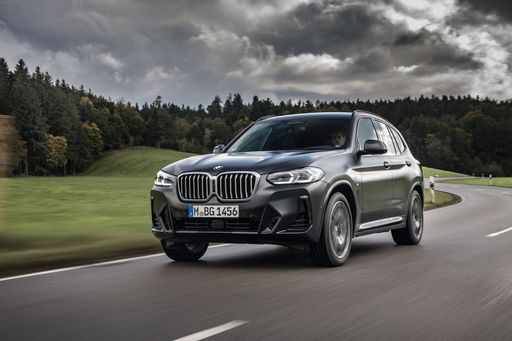 @ BMW Group Press
@ BMW Group Press
BMW X3
Abarth 500 595 695
The Abarth 500, particularly in its 595 and 695 renditions, captures the spirit of Italian motoring with its compact yet aggressive design. Known for its lively performance and distinctive styling, this little powerhouse is a joy to drive, offering an engaging experience that appeals to enthusiasts. With its rich motorsport heritage, the Abarth 500 embodies the essence of fun and excitement on both the streets and the race track.
details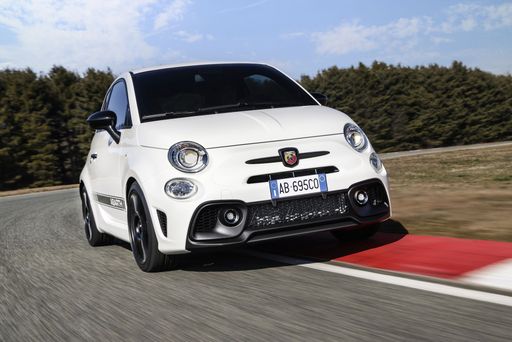 @ Abarth / Stellantis Media
@ Abarth / Stellantis Media
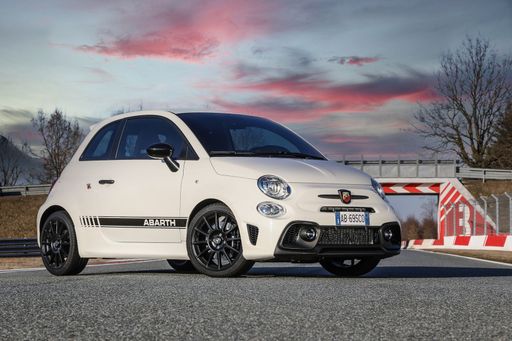 @ Abarth / Stellantis Media
@ Abarth / Stellantis Media
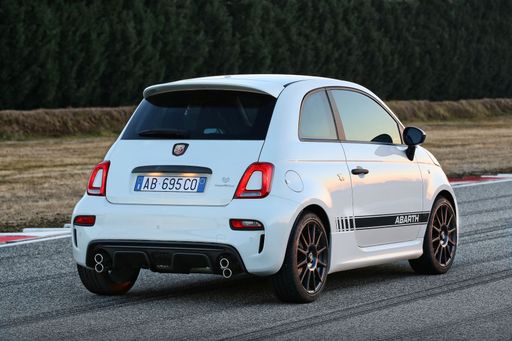 @ Abarth / Stellantis Media
@ Abarth / Stellantis Media
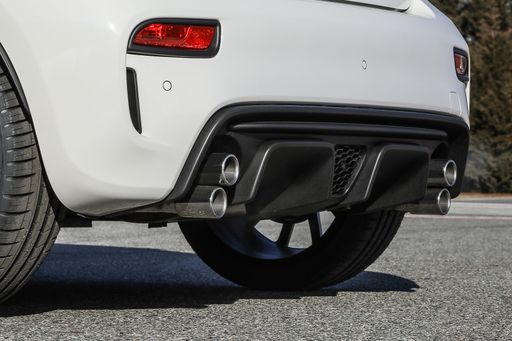 @ Abarth / Stellantis Media
@ Abarth / Stellantis Media
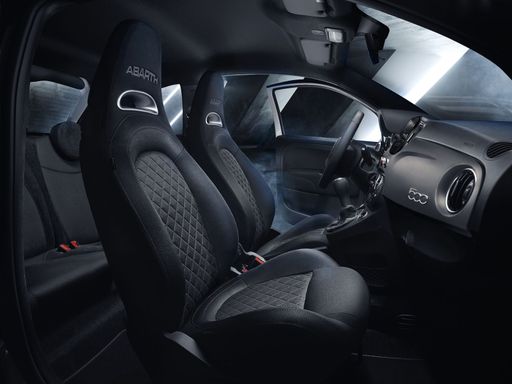 @ Abarth / Stellantis Media
@ Abarth / Stellantis Media
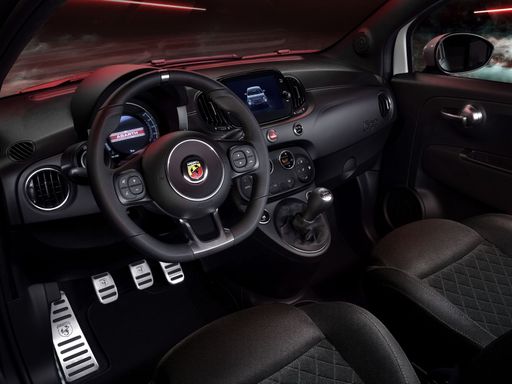 @ Abarth / Stellantis Media
@ Abarth / Stellantis Media
BMW X3
The BMW X3 stands out in the competitive SUV market with its refined blend of performance and luxury. Its interior boasts high-quality materials and a design focused on driver comfort and convenience. With a robust engine lineup, the vehicle offers a balanced driving experience that caters to both urban settings and off-road adventures.
details @ BMW Group Press
@ BMW Group Press
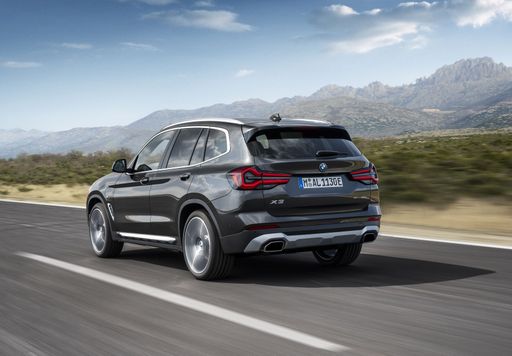 @ BMW Group Press
@ BMW Group Press
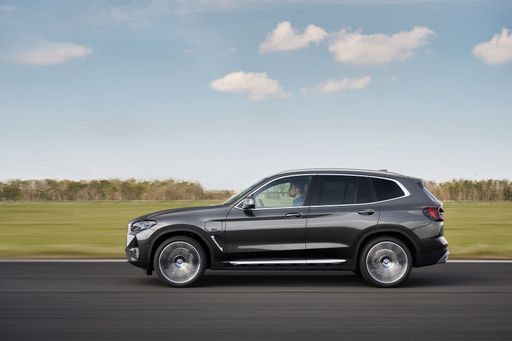 @ BMW Group Press
@ BMW Group Press
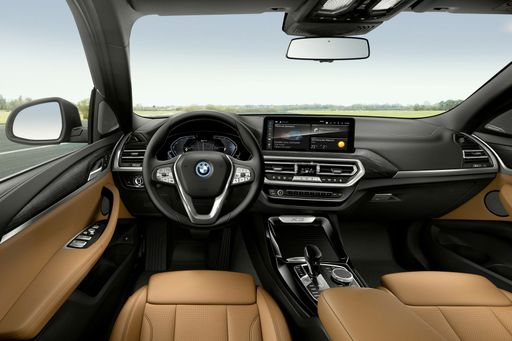 @ BMW Group Press
@ BMW Group Press
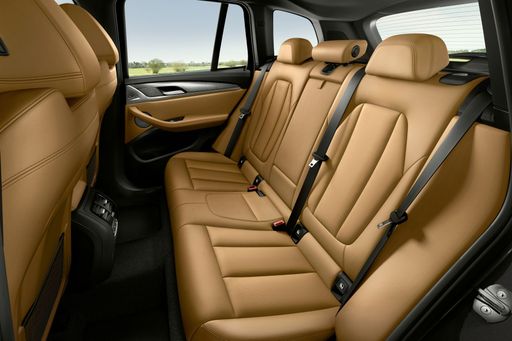 @ BMW Group Press
@ BMW Group Press
 @ Abarth / Stellantis Media
@ Abarth / Stellantis Media
|
 @ BMW Group Press
@ BMW Group Press
|
|
|
|
Costs and Consumption |
|
|---|---|
|
Price
32600 - 39400 £
|
Price
51300 - 72400 £
|
|
Consumption L/100km
-
|
Consumption L/100km
2.8 - 7.7 L
|
|
Consumption kWh/100km
17.1 - 18.8 kWh
|
Consumption kWh/100km
-
|
|
Electric Range
242 - 265 km
|
Electric Range
88 km
|
|
Battery Capacity
37.80 kWh
|
Battery Capacity
19.70 kWh
|
|
co2
0 g/km
|
co2
64 - 175 g/km
|
|
Fuel tank capacity
-
|
Fuel tank capacity
50 - 65 L
|
Dimensions and Body |
|
|---|---|
|
Body Type
Hatchback
|
Body Type
SUV
|
|
Seats
4
|
Seats
5
|
|
Doors
3
|
Doors
5
|
|
Curb weight
1410 - 1435 kg
|
Curb weight
1930 - 2140 kg
|
|
Trunk capacity
185 L
|
Trunk capacity
460 - 570 L
|
|
Length
3673 mm
|
Length
4755 mm
|
|
Width
1682 mm
|
Width
1920 mm
|
|
Height
1518 mm
|
Height
1660 mm
|
|
Max trunk capacity
550 L
|
Max trunk capacity
1600 - 1700 L
|
|
Payload
370 - 385 kg
|
Payload
570 kg
|
Engine and Performance |
|
|---|---|
|
Engine Type
Electric
|
Engine Type
Petrol MHEV, Diesel MHEV, Plugin Hybrid
|
|
Transmission
Automatic
|
Transmission
Automatic
|
|
Transmission Detail
-
|
Transmission Detail
Automatic Gearbox
|
|
Drive Type
Front-Wheel Drive
|
Drive Type
All-Wheel Drive
|
|
Power HP
155 HP
|
Power HP
197 - 398 HP
|
|
Acceleration 0-100km/h
7 s
|
Acceleration 0-100km/h
4.6 - 7.8 s
|
|
Max Speed
155 km/h
|
Max Speed
215 - 250 km/h
|
|
Torque
235 Nm
|
Torque
330 - 670 Nm
|
|
Number of Cylinders
-
|
Number of Cylinders
4 - 6
|
|
Power kW
114 kW
|
Power kW
145 - 293 kW
|
|
Engine capacity
-
|
Engine capacity
1995 - 2998 cm3
|
General |
|
|---|---|
|
Model Year
2023
|
Model Year
2024 - 2025
|
|
CO2 Efficiency Class
A
|
CO2 Efficiency Class
F, E, B
|
|
Brand
Abarth
|
Brand
BMW
|
Is the Abarth 500 595 695 offered with different drivetrains?
The Abarth 500 595 695 is offered with Front-Wheel Drive.
The prices and data displayed are estimates based on German list prices and may vary by country. This information is not legally binding.
